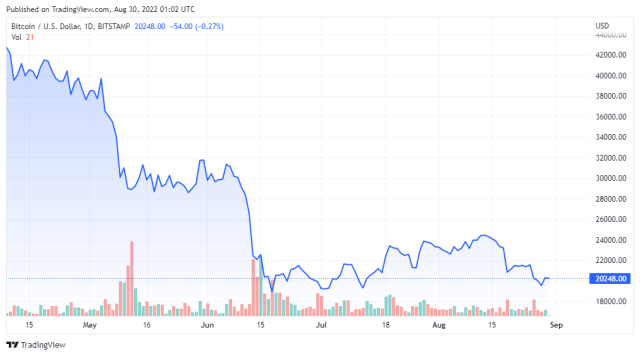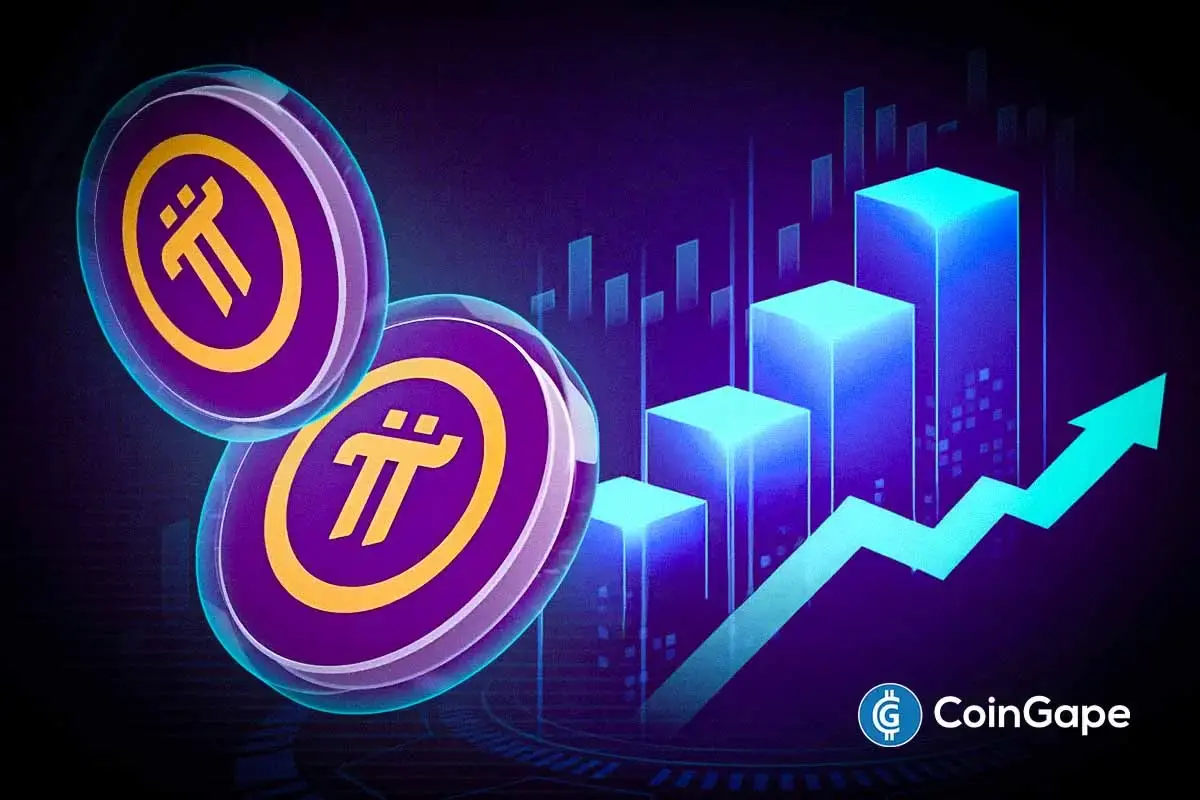Regulation
News From El Salvador, Late August: Preparing for Bitcoin Day’s 1st Anniversary

It’s hard to believe Bitcoin Day was only a year ago. Let’s go back to El Salvador in anticipation of that faithful day’s celebrations, you’ll find that the country is booming with activity. This compilation of news has it all; from tourism to mining, from conferences to meetups. For a while there, the war with the gangs monopolized El Salvador-related headlines, but with Bitcoin Day’s anniversary on the horizon, it’s time to go back to basics.
High-Level People Prepare For Bitcoin Day’s Celebrations
- First of all, tourism in El Salvador is back at pre-pandemic levels and then some. President Bukele clarifies that the charts refer to “international tourism,” so the main drivers are “Bitcoin and surf.” Not only that, “internal tourism is growing even more, mainly because of our crackdown on gangs.”
Only a handful of countries have been able to recover its tourism to pre pandemic levels.
And that’s international tourism, so the reasons behind it are mostly #Bitcoin and surf 🤙🏼
But internal tourism is growing even more, mainly because of our crackdown on gangs. https://t.co/mBbarohmoZ pic.twitter.com/Iy6mFliicJ
— Nayib Bukele (@nayibbukele) August 6, 2022
- Since the original Bitcoin Day, mining in El Salvador has done nothing but grow. In the following video, Anchor mining shows the immersion coolers they brought to El Salvador. Plus, in the tweet, the company’s founder makes a promise.“Soon to launch the educational project where my team will be explaining how immersion cooling is the future of the hashrate decentralization.”
Immersion coolers on the way to Anchor I Solar in El Salvador. Anchor Hydro I in operation, II incoming. Soon to launch the educational project where my team will be explaining how immersion cooling is the future of the hashrate decentralization, and much more. #keepbuilding🇸🇻 pic.twitter.com/0nqZO3bCnq
— Josue Lopez 🇸🇻 (@JosueLopezGal) August 12, 2022
- This could be huge or nothing at all. Investment platform BankToTheFuture and President Bukele are working on “a number of recovery plans in El Salvador for global distressed Bitcoin lending companies.” Is it possible that the bitcoin lending companies’ future is in the only country with favorable legislation? Or are bitcoin lending companies done for good?
Myself, @nayibbukele & the @BankToTheFuture team are cooking up a number of recovery plans in El Salvador for global distressed #Bitcoin lending companies. Can be an amazing opportunity for all affected when you have the perfect leadership, laws & #Bitcoin #DepositorsFirst pic.twitter.com/aXPUDjwjxJ
— Simon Dixon (@SimonDixonTwitt) August 19, 2022

BTC price chart for 08/29/2022 on Bitstamp | Source: BTC/USD on TradingView.com
Meeting Bitcoin-People Is Easy
- Roman Martinez and Mike Peterson from Bitcoin Beach gave a presentation at the Surfin Bitcoin conference in Biarritz, France. The project that started it all’s legend keeps spreading far and wide. The tweet says, “Probably the most touching conference.The emotion is palpable in Bitcoin Beach. They are proud of their country, proud to be pioneers.”
Probablement la conférence la plus touchante 🥹
L’émotion est palpable chez @Bitcoinbeach. Ils sont fières de leur pays, fières d’être des pionniers.
Bitcoin change des vies ♥️#SurfinBitcoin22 #Bitcoin pic.twitter.com/G4ier8yD68
— Soso – Master en Ordinals 🔥 (@explososo) August 26, 2022
- And speaking about Roman and the Bitcoin Beach team, they know how important the upcoming anniversary is. “Join us for the one year anniversary of Bitcoin Day in El Salvador! Our Bitcoin Beach meet-up will turn into a celebration party you can’t miss!”
Join us for the one year anniversary of #BitcoinDay in #ElSalvador! Our @Bitcoinbeach meet-up will turn into a celebration party 🎉 you can’t miss!
Sep. 7, 5 pm – Olas Permanentes, El Zonte @Bitcoinbeach pic.twitter.com/jgrua0UnNS
— Roman Martínez🇸🇻⚡️ (chimbera) (@romanmartinezc) August 29, 2022
- Plus, the Bitcoin Beach team recently received a delegation from the Parlamento Centroamericano AKA Parlacen. “They heard the story of Hope House and how our Bitcoin Beach project used Bitcoin as a tool for financial inclusion and empowerment of the community,” Roman informed.
They heard the story of @HopeHousesv and how our @Bitcoinbeach project used #Bitcoin as a tool for financial inclusion and empowerment of the community pic.twitter.com/2lLakwXord
— Roman Martínez🇸🇻⚡️ (chimbera) (@romanmartinezc) August 24, 2022
- The people from the My First Bitcoin education initiative also run a monthly bitcoin meetup. The only difference is that they do it in San Salvador, the capital. “All of our friends in El Salvador will join us tomorrow for our Bitcoin monthly meetup,” the announcement tweet manifests.
All of our friends in #ElSalvador will join us tomorrow for our #Bitcoin monthly meetup.
You definitely don’t wanna miss this one! pic.twitter.com/lkPbQGmLYI
— Mi Primer Bitcoin (@MyfirstBitcoin_) August 24, 2022
Last But Nor least, Nashin Bupele
- Since the original Bitcoin Day, El Salvador is everywhere. To prove that, this is a scene from a Korean soap opera in which someone gives a presentation on El Salvador and its bitcoin adoption.
El casting de Nashim Bupele no estuvo tan bien en Corea #kdrama pic.twitter.com/wlbV7t0Cry
— Nayib Bukele (@nayibbukele) August 8, 2022
The table is set for Bitcoin Day’s first anniversary. The world was a whole different beast when El Salvador adopted bitcoin as legal tender. That reminds us of Max Keiser’s classic question, is bitcoin a reaction to the chaos or is bitcoin creating the chaos? In El Salvador’s case, the answer is obvious. Bitcoin is taking the country to the next level.
Featured Image: Nashim Bupele screenshot from this video | Charts by TradingView
 El Salvador prepares for Bitcoin Day’s first anniversary.
El Salvador prepares for Bitcoin Day’s first anniversary.
Regulation
John Deaton Lays Out 5 To-Do List

John Deaton, a prominent crypto lawyer, has outlined a five-point plan for regulation by lawmakers in the United States. In his latest post on X, he calls for urgent action to establish clear rules that will support innovation, protect users, and bring stability to the crypto sector.
John Deaton on the Five Crypto Regulation Priorities
Deaton’s first recommendation is to pass a law on stablecoins. He believes this can increase demand for U.S. Treasuries and reduce the cost and delay in sending money across borders. This, he noted, will help the United States play a stronger role in global trade.
John Deaton wants the US. Congress should clearly define which tokens are securities and which are commodities. This will help decide whether the Securities and Exchange Commission (SEC) or the Commodity Futures Trading Commission (CFTC) should regulate them. Without such clarity, regulators may continue to clash over control, and projects may face confusion.
He also raised the need for crypto exchange regulation. Deaton wants strict rules to ensure customer funds are not mixed with company funds. He suggests that exchanges hold full reserves visible on the blockchain. This way, they can avoid high-risk activities like offering large amounts for lending or using customer funds elsewhere.
In addition, Deaton suggests easing the tax burden. He proposes removing the capital gains tax on small crypto payments and allowing people to pay federal taxes in cryptocurrency without facing more taxes.
Lastly, he urges Congress to revise or remove the Accredited Investor Rule. John Deaton believes the rule locks out too many people from early investment opportunities. He warns that lawmakers must act before the 2026 midterm elections to avoid delays caused by political changes.
Stablecoin Laws May Arrive Very Soon
It is important to add that Deaton’s views support ongoing developments in Congress. A bill known as the GENIUS Act is already being discussed.
It suggests that the Federal Reserve would manage large banks issuing stablecoins, while state bodies would handle smaller groups.
According to recent reports, the global market for stablecoins now exceeds $234 billion, raising hopes that new U.S. laws will soon follow.
As mentioned earlier by President Donald Trump, lawmakers are likely to fasttrack the stablecoin regulation. The current timeline is slated for Q2 this year.
SEC’s Shifting Position on Oversight
The SEC, which once took a hard line on crypto regulation, is now adjusting its stance
CoinGape noted earlier that the era of counterproductive oversight may be ending, as U.S. SEC and CFTC leaders have agreed to work together moving forward.
Historically, the SEC treated most tokens as securities, focusing on enforcement, while the CFTC took a softer approach to the markets. Recent laws like FIT21 aim to give the CFTC more control over decentralized assets.
With both regulatory oversight looking to create more cohesive plans to work, and the new leadership of Paul Atkins, the industry hopes to overcome challenges, reduce uncertainty, and foster greater clarity in crypto regulation.
Disclaimer: The presented content may include the personal opinion of the author and is subject to market condition. Do your market research before investing in cryptocurrencies. The author or the publication does not hold any responsibility for your personal financial loss.
Regulation
US SEC and Binance Agree To Pause Legal Proceedings for 60 More Days

The U.S. Securities and Exchange Commission (SEC) and Binance have requested a federal judge to extend the pause in their ongoing legal case for another 60 days.
This decision follows what both parties described as “productive discussions” and will provide more time for further deliberations.
US SEC and Binance Agree To Pause Legal Proceedings
The SEC initially sued Binance in 2023, accusing the exchange and its executives, including former CEO Changpeng Zhao, of violating federal securities laws, who is now the Strategic Advisor to Pakistan’s Crypto Council. The charges centred on Binance’s operation as an unlicensed clearing agency, broker, and exchange.
Additional allegations included the commingling of funds and manipulation of trading volume on Binance.US, its U.S. affiliate. These serious claims led to the ongoing litigation, which was paused multiple times to allow the parties to negotiate and clarify their positions.
Earlier this year, the SEC requested a 60-day pause in the case to allow for discussions around a new crypto task force to clarify how securities law might apply to digital assets. That pause was set to expire on April 14, 2025, but the SEC and Binance have now mutually agreed to extend it for an additional two months.
Reasons for the Continued Binance SEC Pause
The SEC, in its filing, explained that the discussions between both parties had focused on how the work of the newly formed crypto task force could impact the case. The task force, created to address regulatory issues in the cryptocurrency sector, may provide clearer guidance on how U.S. securities law applies to digital assets.
The SEC also pointed out that additional time was needed for authorization from the Commission before making any decisions or revisions in the scope of the case. Binance, for its part, agreed that an extension of the pause was in everyone’s best interest and would help to facilitate the ongoing discussions between the two sides.
“The continued pause is appropriate and in the interest of judicial economy,” the filing stated. Both the SEC and Binance have indicated that they aim to resolve the matter efficiently, without unnecessary delays or complications.
Crypto Task Force’s Role in the Case
The SEC’s newly established crypto task force may shape how digital asset transactions are treated under U.S. law. In a recent statement, Acting SEC Chair Mark Uyeda emphasized the importance of clear regulations for the cryptocurrency market and noted that the task force’s role is to create long-term solutions for regulating crypto trading.
Uyeda also suggested that a “time-limited, conditional exemptive relief framework” might be appropriate to allow innovation in blockchain technology while maintaining regulatory oversight. He encouraged market participants to contribute their views on where such exemptions might be necessary to foster industry growth.
The crypto task force’s efforts may influence how the SEC handles its case against Binance and its broader approach to regulating the digital asset space. The task force aims to ensure that U.S. law can adapt to the rapidly evolving technology behind cryptocurrencies while also protecting investors and ensuring market integrity.
Next Steps in the Legal Proceedings
With the case now paused for another 60 days, the SEC and Binance will continue their discussions and await further guidance from the crypto task force. The next update on the case’s status will come after the 60-day period.
As the pause continues, like the Ripple vs SEC case, stakeholders in the cryptocurrency industry will closely monitor the outcome of the discussions, as the case could set important precedents for future regulatory actions.
The SEC, as a result, has clarified that it is focused on ensuring compliance with securities laws, while Binance has stated its commitment to working within the framework of U.S. regulations.
Disclaimer: The presented content may include the personal opinion of the author and is subject to market condition. Do your market research before investing in cryptocurrencies. The author or the publication does not hold any responsibility for your personal financial loss.
Regulation
US Senators Reintroduce PROOF Act To Set Reserve Standards for Crypto Firms

As crypto regulation gains ground in the US under pro-crypto President Donald Trump, US Senators are taking further steps to strengthen oversight of digital asset firms. Senators Thom Tillis and John Hickenlooper reintroduced the Proving Reserves of Other Funds (PROOF) Act, which aims to create new standards for transparency and fund management in the cryptocurrency sector.
US Senators Reintroduce PROOF Act Bill
According to Eleanor Terrett, US Senators Tillis and Hickenlooper have renewed their push for the PROOF Act, which was first introduced in 2023. The bill responds to concerns raised by the collapse of FTX, where customer funds were reportedly mixed with the company’s own capital and redirected to affiliated firms.
The PROOF Act would prohibit the co-mingling of customer assets by digital asset custodians and exchanges. It sets requirements for monthly third-party reserve checks, which would ensure that firms hold enough reserves to back customer holdings.
Independent auditing firms would perform these checks, sending the results to the U.S. Department of the Treasury.
Mandatory Proof of Reserves Checks
Under the US Senator’s proposed law, all firms offering digital asset custody or exchange services must undergo monthly Proof of Reserves (PoR) inspections. These checks would verify that firms hold the assets they claim to possess on behalf of their clients.
PoR uses cryptographic tools like Merkle trees and zero-knowledge proofs to verify balances without revealing user data. To ensure transparency, the inspection reports would be made public through the Treasury Department. If a company fails to comply, it will face civil fines that increase with repeated violations.
Although some firms have previously voluntarily shared proof of reserves information, these practices have been inconsistent and often lacked third-party verification. The PROOF Act would create a standardized process across the industry.
Preventing Fund Mismanagement in the Crypto Industry Through The PROOF Act
The US Senators’ renewed effort to pass the PROOF Act follows the financial failure of several crypto companies, most notably FTX. Reports showed that FTX moved customer deposits to its sister firm, Alameda Research, without proper disclosure or reserves, contributing to a major loss of trust in the sector.
Lawmakers aim to reduce the risk of mismanaged or missing funds by introducing strict reserve reporting requirements. The bill, as a result, intends to give customers more confidence that their digital assets are safe and properly accounted for by crypto firms.
The legislation also encourages more responsible behaviour from digital asset institutions by requiring them to follow clearly defined standards. These standards subsequently support regulatory oversight and prevent future financial harm to customers.
SEC Leadership and Regulatory Developments
The reintroduction of the PROOF Act follows Paul Atkins’s appointment as the new Chair of the Securities and Exchange Commission (SEC) in the United States. The Senate endorsed Atkins with a 52 to 44 majority in acknowledging his position on precise crypto regulations.
As a result, the Division of Corporation Finance of the SEC published guidance for crypto issuers as a follow-up to Atkins’ confirmation. The guidance also involves disclosure concerning business models and financial statements and risks associated with digital assets that fall under the definition of securities.
Subsequently, Senator Cynthia Lummis, a pro-Bitcoin legislator, has corroborated the development while acknowledging optimism about the future under Atkins. She stated that from her conversation with Atkins, she became confident in his handling of digital asset regulation.
Disclaimer: The presented content may include the personal opinion of the author and is subject to market condition. Do your market research before investing in cryptocurrencies. The author or the publication does not hold any responsibility for your personal financial loss.
-

 Altcoin20 hours ago
Altcoin20 hours agoUniswap Founder Urges Ethereum To Pursue Layer 2 Scaling To Compete With Solana
-

 Ethereum17 hours ago
Ethereum17 hours agoEthereum Consolidates In Symmetrical Triangle: Expert Predicts 17% Price Move
-

 Bitcoin24 hours ago
Bitcoin24 hours agoAnalyst Says Bitcoin Price Might Be Gearing Up For Next Big Move — What To Know
-

 Altcoin23 hours ago
Altcoin23 hours agoExpert Reveals Why Consensus 2025 Will Be Pivotal For Pi Network
-

 Altcoin19 hours ago
Altcoin19 hours agoWhat’s Up With BTC, XRP, ETH?
-

 Market16 hours ago
Market16 hours agoToday’s $1K XRP Bag May Become Tomorrow’s Jackpot, Crypto Founder Says
-

 Market14 hours ago
Market14 hours agoMELANIA Crashes to All-Time Low Amid Insiders Continued Sales
-

 Market10 hours ago
Market10 hours ago1 Year After Bitcoin Halving: What’s Different This Time?


















✓ Share: